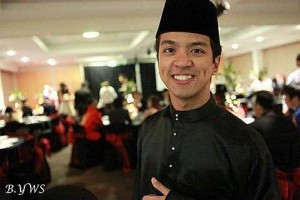By IAN YEE
We always joke about the stereotypical Malaysian student who returns overseas from an overseas university– we tease them over their accents (whether they acquired one or not) or whenever they order a “cafe latte” because, you know, “kopi O” just isn’t good enough for them now.
Okay, so maybe some of them do come back with annoying accents and complain about anything and everything in the country, but there are also those who don’t just retain what keeps them uniquely Malaysian. Better yet, they spread it around, too.
The Malaysian Students’ Council of Australia (MASCA), more specifically their Australian Capital Territory (ACT) chapter, for example, are taking advantage of the Merdeka Day and Malaysia Day celebrations to help promote Malaysian culture in Australia. Down Under.
Their upcoming “Malam Gemilang” event, to be held on Sept 12 at Albert Hall in Canberra, is mainly a chance for Malaysian students to celebrate Merdeka Day and Malaysia Day together, but MASCA ACT chairperson Raja Ahmad Iskandar Fareez says it is also meant to show their Australian friends what being Malaysian is all about.

Malaysian Students' Council of Australia (MASCA) Australian Capital Territories (ACT) chapter chairperson Raja Ahmad Iskandar Fareez
The event, held annually since 2009, usually involves cultural performances, traditional costumes, and of course, lots and lots of Malaysian food.
“Every one of our Australian friends go home with satisfied appetite, and with a new-found admiration for our culture and the patriotism displayed by Malaysians. It’s the enthusiasm shown by our Australian classmates that motivates us to outdo ourselves every year,” said Iskandar.
And they don’t just do it during Merdeka season. Along with other Malaysian student associations in Canberra and around Australia, MASCA ACT regularly organises Malaysian-themed activities that Australians can be involved in.
“With the help of our affiliates such as the Malaysian Students Organisation from the Australian National University, ANU,the University of Canberra Malaysian Club and the Malaysian Students Communiy, we do our best to showcase Malaysian culture in every activity we organise.
“Our food and dances are a hit among the students. It’s no exaggeration to say that through our promotion, more Malaysian-style restaurants have cropped up in Canberra,” said Iskandar.
At the same time, MASCA ACT also hopes to remind the Malaysians themselves about the beauty of our country and culture through these events.
It can be difficult sometimes to get in the mood to commemorate Merdeka while studying in a foreign country. The students in Australia, for instance, will mostly be having classes on Merdeka Day itself, and therefore MASCA ACT won’t be organising any major celebration on Aug 31 today. Instead, they chose to wait until choosing to wait instead till Sept 12 to have Malam Gemilang.
Iskandar adds that when you’re studying overseas, there’s none of that festive mood you get with Merdeka back home, and he misses all the advertisements reminding people of the “spirit of Merdeka”.
Nevertheless, these difficulties have made him even more appreciative of his country.
“Being away from home, anything related to Malaysia makes me feel patriotic,” he said. “I think I speak on behalf of everyone that there is just this overwhelming sense of pride whenever we sing Negaraku on Australian soil.
“We used to take it for granted, singing the National Anthem during school assembly. But now we get goosebumps every time we sing it. I guess distance does make the heart grow fonder.”
As much as MASCA ACT hopes to promote Malaysian culture, Iskandar is quick to remind Malaysian students in Australia that as foreign students, they should also try to take in and understand the local culture.
“It is not advisable for Malaysians anywhere in the world to just stick to themselves. The objective of education is broaden our horizons, and what better way to do that than to mingle with people from other backgrounds?
“That is why we encourage students to get involved with their respective universities’ activities, and be a part of their campus community. While doing so, they still have the Malaysian societies to turn to during times of trouble,” he said.

Tell us what you think!